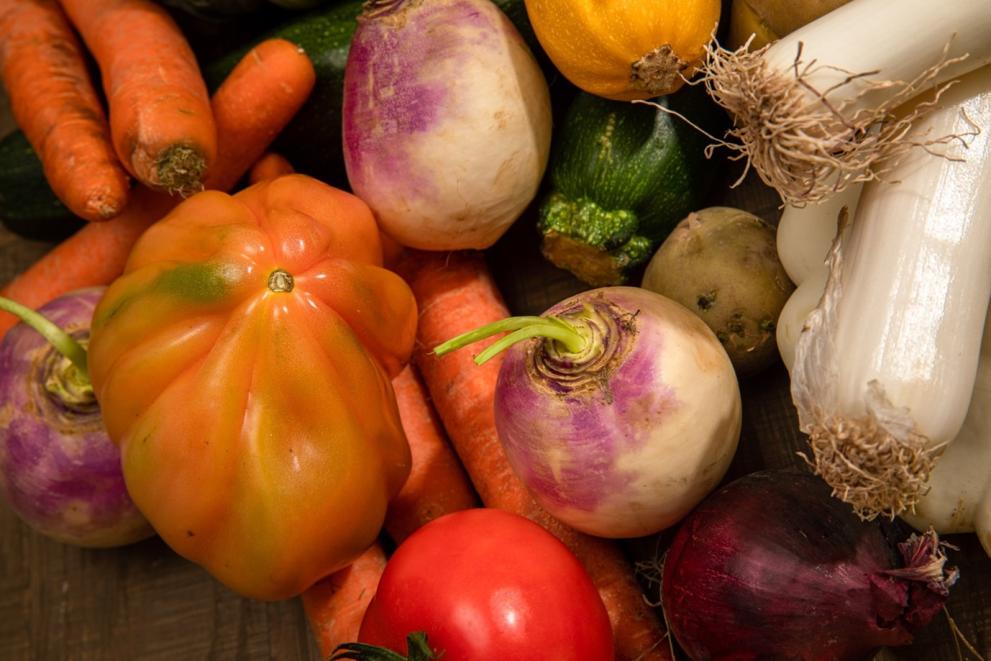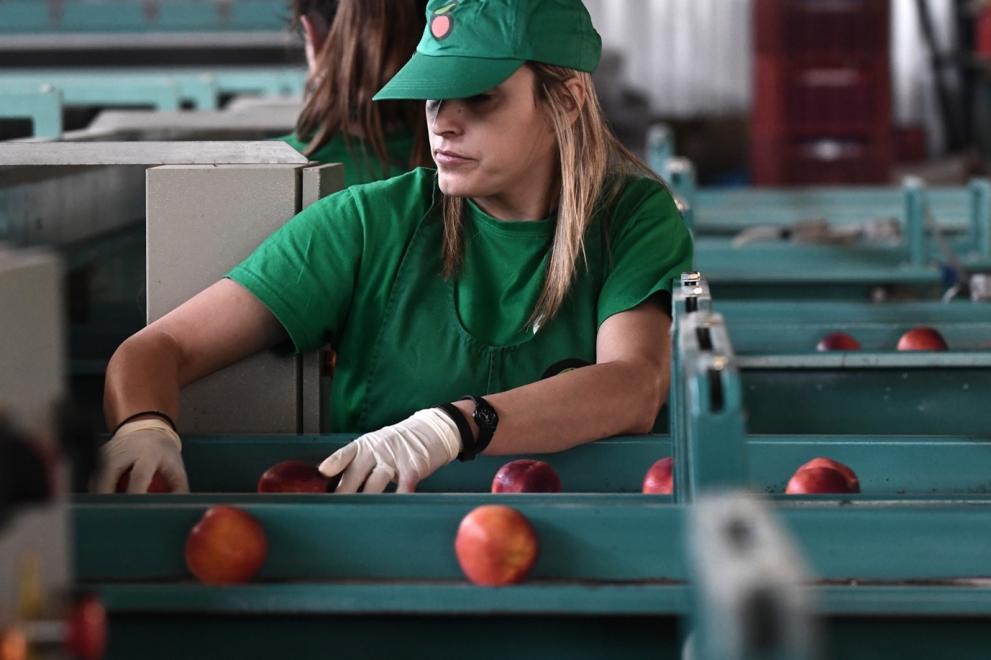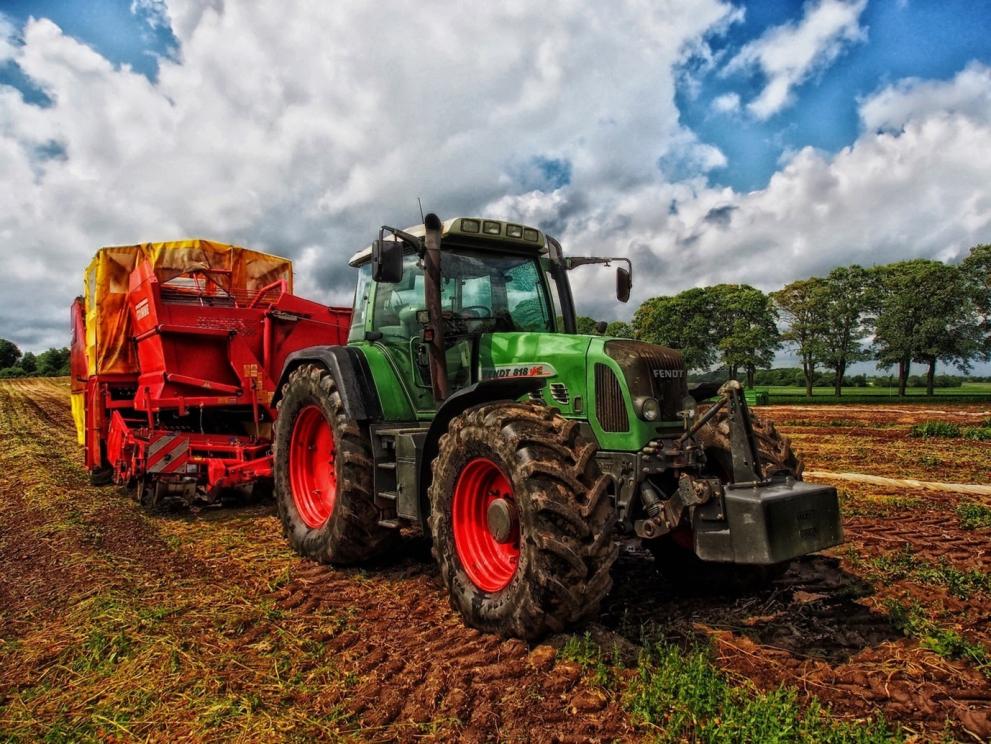
'Protect the EU’s Rural Heritage, Food Security, and Supply' initiative aims to raise awareness and attract more EU investment to rural areas to support the businesses and activities that keep the countryside alive and food on our tables.
At the heart of this ECI is that farming is no longer a financially attractive profession to young people, which contributes to rural depopulation, brain drain and the loss of cultural traditions. If these trends continue, the EU’s food security (our food independence and sovereignty) will be threatened by a lack of experienced farm managers and incentives to enter and innovate the profession. Ultimately, there needs to be greater societal respect and recognition of the role that farmers play.
Food must be affordable, and farming must be profitable
The EU has prided itself on the self-sufficiency of basic foods production for decades, with the Common Agricultural Policy identifiable across the Union as a flagship policy supporting farmers, food security and keeping food widely available at affordable rates for consumers.
But today, consumers are paying (relatively) more for their food basics than in past decades, yet farmers are also struggling at the opposite end of the production chain.
Being a farmer today is more costly, to the point that the profession is becoming increasingly undesirable. To list some of the more prevalent factors: the cost-of-living crisis; costs of energy; the costs of implementing the latest environmental and animal welfare standards; the record-breaking high costs of fertiliser and other inputs; the more advanced educational requirements for modern farming practices; the increased frequency of droughts and other forms of climate change; as well as their severity… all contribute to a profession that lacks long-term stability and positive financial prospects. Adding more fuel to the fire, farmers are under more scrutiny than ever by people and institutions who do not understand and see the value that farming provides to the rest of the population. It’s no wonder that by the end of 2022, the Finnish Central Union of Agricultural Producers and Forest Owners (MTK) had announced that 1000 farms closed across the country between 2020 and 2021.
But if agricultural work has reduced profitability, and fewer people want to engage with it, we risk Europe’s food security. That is our ability to grow our own food without relying on imports from outside the EU. If our farmers cannot earn a good living, how can we expect the next generation to follow in their footsteps and guarantee that food continues to land on our plates?
As the European Council of Young Farmers points out, young farmers have it even tougher, often lacking the funds for the major one-time costs associated with purchasing and establishing a farm and to whom banks are hesitant to loan money based on their age. Additionally, young farmers, their lands and crops will suffer far more as a result of climate change over the next few decades than their counterparts who will retire in a few years. The youth going into the profession know this, and it is reflected by the fact that only 11% of all farm holdings in the EU are run by farmers under 40 years old. In contrast, 57.6% of EU farm managers are at least 55 years old, emphasising how skewed the age demographics is in the profession. As reported in this global overview by the BBC, of all EU countries, Cyprus shows this disparity the most. For every farmer under the age of 35, there are 33 farmers over 65 years.
With the recognition of these higher operating costs, and the increased uncertainty that droughts and other environmental factors will have, our farmers and the rural communities they live in need more attention, investment and financial stability to sustain themselves and, by extension, sustain us all. Only then can the profession be revitalised and become desirable.
Given these reasons, this ECI is supported and promoted by several European agricultural associations and organisations: AVEC (poultry meat); CarniSostenibili; CLITRAVI (processed meats); Euro Foie Gras, The European Livestock Voice; FEAP (aquaculture), The International Fur Federation, UECBV (meat and livestock), and Verband der Deutschen Lederindustrie e.V (German leather association).
Loss of Rural Cultures and Traditions
The future of rural areas across the EU relies, for the most part, on its youth. And yet, throughout the EU, young people are leaving the countryside in droves to study, work, and live in cities. As a recent report by Tuomas Kuhmonen, research director at Finland Futures Research Centre (FFRC), shows, on more occasions than one would assume, this transition occurs not because the cities offer everything youth desire (pull factors) but rather because their local area cannot provide remotely comparable economic opportunities (push factors). This loss of young rural workers to a lack of economic competitiveness is the largest contributor to rural depopulation and is an example of the migratory phenomenon called brain drain.
Crucially, rural depopulation threatens the loss of cultural heritage practices, rural traditions and, in some cases, minority languages or dialects. Across the EU, there are local festivals, celebrations and quirky remnants of centuries past that are upheld by locals who bask in the continuation of the rich history of their area. Unfortunately, as the youth of rural regions feel pressured to leave, the traditions that have defined and kept these areas unique for so long are eroded until they are lost forever.
The EU rightly places immense value on the diversity of Europe’s people and their experiences. And while it is natural that some traditions fade from practice because times have moved on, we are currently living through a period of mass loss of cultural heritage practices in rural areas all over the EU - and all due to similar underlying economic causes. They deserve to be fought for.
Conclusion
On the surface, it may seem odd to pair rural cultural heritage with concerns for food security – but the people affected are largely in the same pool, and the solutions also carry much crossover. It all comes down to investing in and enriching rural areas. We need to make them desirable and affordable for young workers interested in farming careers and use policy to show that rural farming is just as respected and valued as city-based work.
Therefore, to preserve what makes our rural regions unique for future generations and to ensure the sustainability of food-producing communities across the EU, we need a greater EU commitment to promoting profitable agriculture, regional heritage, sustainable growth in rural areas, and raising rural living standards.
Take action now!
The campaign runs until November 2023, and EU citizens eligible sign ECIs can sign this Initiative at: www.protectruralheritage.eu
Visit the initiative's official page here: https://citizens-initiative.europa.eu/initiatives/details/2022/000007_en
Contributors
Harry MatthewsHarry Matthews is an EU public affairs professional with Lykke Advice and works in agricultural policy. He has a coordination role in the campaign to Protect the EU’s Cultural Heritage, Food Security and Supply, where he supports the ECI organisers in understanding the EU decision-making process. Harry became aware of the issues this ECI highlights during his first job in rural Scottish tourism and has since been passionate about ensuring rural areas are not left behind.





Leave a comment
To be able to add comments, you need to authenticate or register.